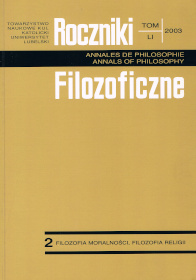How to Assess the Probability of Resurrection
Abstract
The author argues that a historical hypothesis h is probable in so far as it is intrinsically a simple hypothesis and (1) the posterior historical evidence is such as probably would occur if h is true, but not otherwise, (2) the general background evidence makes it probable that h is to be expected under certain conditions, and not otherwise, (3) there is evidence, the ‘prior historical evidence' such as probably would occur if these conditions were satisfied, but not otherwise. By the `posterior historical evidence' is meant the testimony of witnesses and physical traces caused by what happened at the time in question. In the case of the resurrection of Jesus the general background evidence which makes it probable that there is a God of the traditional kind who has good reason to become incarnate in order to provide atonement, to identify with us in our suffering, and to reveal teaching. The prior historical evidence that there was prophet who led the kind of life that incarnate God would need to lead if he had become incarnate for these reason. He will need to show us when some prophet has led the right sort of life that God has lived it, and that can be achieved by his life being culminated by a super-miracle such as the resurrection. The posterior historical evidence is the evidence of witnesses to the empty tomb and the appearances of Jesus. The stronger is the general background evidence, and the stronger is the prior historical evidence showing that one and only one prophet (Jesus) led the right sort of life, the less our need of posterior historical evidence. Given some modest values for (1), (2), (3), there is a very high probability that the resurrection occurred. This is illustrated by feeding some artificially precise values for these probabilities into the relevant theorem of the probability calculus, Bayes' Theorem.
Copyright (c) 2003 Roczniki Filozoficzne

This work is licensed under a Creative Commons Attribution-NonCommercial-NoDerivatives 4.0 International License.





